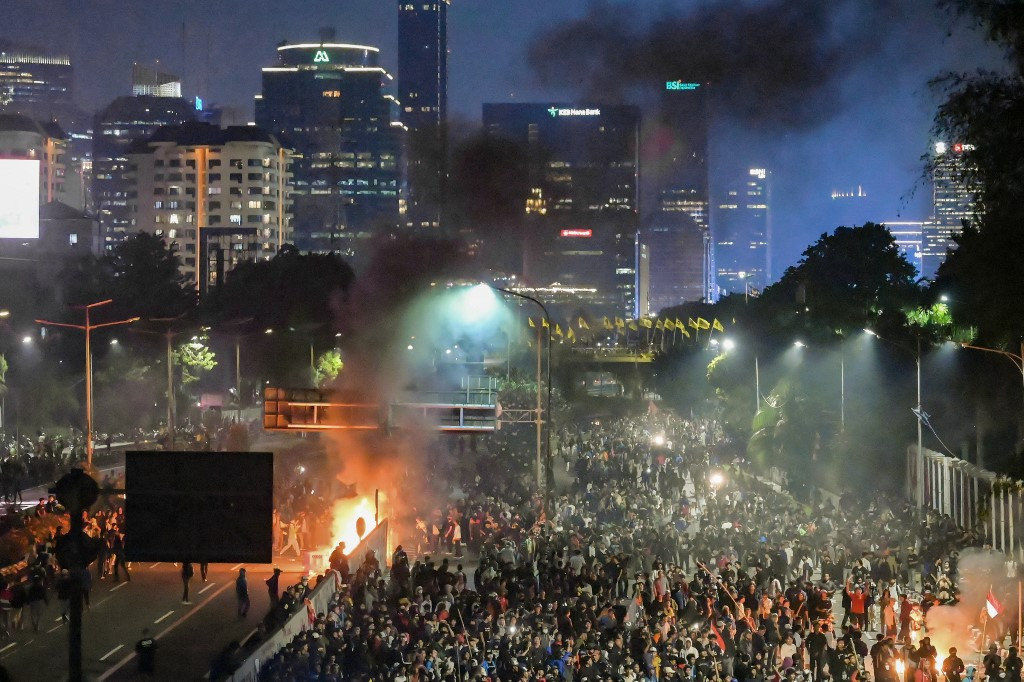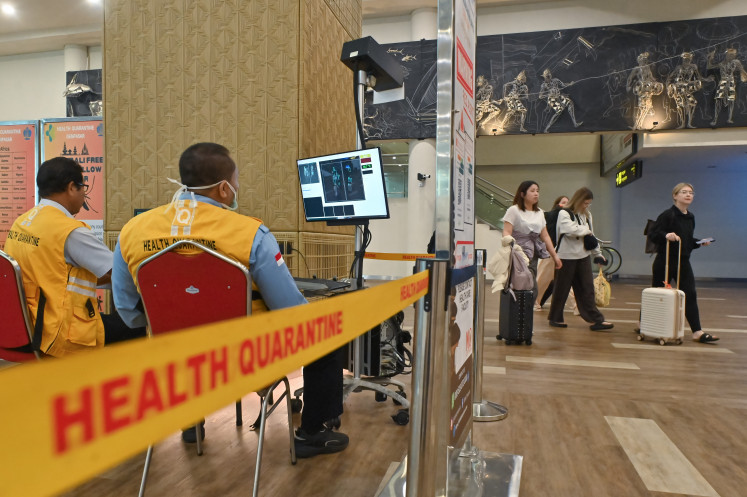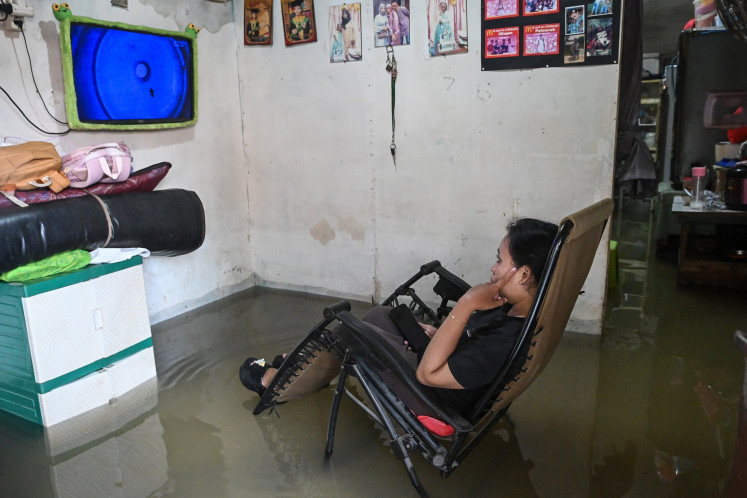Popular Reads
Top Results
Can't find what you're looking for?
View all search resultsPopular Reads
Top Results
Can't find what you're looking for?
View all search resultsPoliticians scrap plan to change election rules after nationwide protests
The House was preparing to reverse a constitutional court ruling upholding candidate age requirements, which made President Joko "Jokowi" Widodo's youngest son ineligible for upcoming regional polls.
Change text size
Gift Premium Articles
to Anyone
L
awmakers scrapped a controversial plan to change election rules, a House of Representatives official announced Thursday, after thousands rallied in the capital over a move seen to help the outgoing president build a political dynasty.
The House was preparing to reverse a constitutional court ruling upholding candidate age requirements, which made President Joko "Jokowi" Widodo's youngest son ineligible for upcoming regional polls.
The legislature, dominated by supporters of outgoing President Jokowi and his successor, Prabowo Subianto, was also scheduled to vote to reverse changes to election laws made by the constitutional court, a ruling that effectively reopened a chance for a vocal government critic to run in regional elections.
Parties backing Prabowo had earlier this week rallied behind a single candidate for the influential post of Jakarta governor, killing off chances of the president-elect's rival, Anies Baswedan, from running.
Anies at the time needed the backing from a party or a coalition of parties with at least 20 percent of seats in the local legislative council, under rules for regional elections in place since 2016.
But Tuesday's Constitutional Court ruling had lowered the threshold to under 10 percent, giving Anies a chance to be nominated by the only party that has not named a candidate, PDIP.
With thousands of protesters clamouring outside the House, lawmakers initially delayed Thursday's session. The demonstrations swelled as the day progressed, with students and office workers joining, despite water cannon and police in riot gear.
The House later announced the proposed changes would be dropped for this election period, in an apparent U-turn.
"It was officially decided that the revision of the Regional Election Law could not proceed. This means that the revision today was cancelled," Sufmi Dasco Ahmad, deputy speaker of the House of Representatives, told reporters after clashes between protesters and police.
The protesters lit tyres on fire and set off firecrackers while chanting slogans against Jokowi.
A handful of demonstrators dismantled a section of the concrete and metal fence surrounding parliament and tried to enter the complex, but police dispersed them with water cannon and tear gas, an AFP journalist saw.
"I came here because my country is on the verge of destruction. These lawmakers have scammed the people," protester Muhammad Saleh Zakaria told AFP.
"This is a republic. It's a democracy, but if its leadership is decided by one person, or an oligarchy, we can't accept that," said 29-year-old teacher Afif Sidik.
Late on Thursday, some protesters were still starting fires in front of the House building and attempting to batter their way through its fence.
The uproar comes months after Widodo's eldest son Gibran Rakabuming Raka, 36, was elected as Indonesia's youngest vice president, stoking nepotism accusations.
Protests were also reported in Yogyakarta, Makassar, Bandung and Semarang.
Jokowi's office tried to calm the unrest.
"The government hopes that there will be no disinformation or slander that could trigger chaos and violence," palace spokesman Hasan Nasbi told reporters.
Jokowi's youngest son, 29-year-old Kaesang Pangarep, has been tipped for an influential post in November's regional contest.
The president's allies have been trying to find a way around the current minimum age of 30 for candidates by making it applicable by the time of inauguration. Kaesang turns 30 in December.
Experts said people were becoming disillusioned with Jokowi and his attempts to retain political influence.
"People are angry at the ongoing manipulation of our democratic system," said Ika Idris, a Jakarta-based political expert at Monash University's data and democracy research hub.
"There is a clear desire to... extend power."
Jokowi is also accused of helping to install his replacement, defence chief Prabowo Subianto, who takes office in October.
The unusual wave of protests comes amid mounting anger with what is seen as the Jokowi administration's attempts to consolidate power, analysts say.
"This is a culmination, we have reached a tipping point of anger and frustration now," said Made Supriatma, a visiting fellow at the ISEAS - Yusof Ishak Institute in Singapore.











